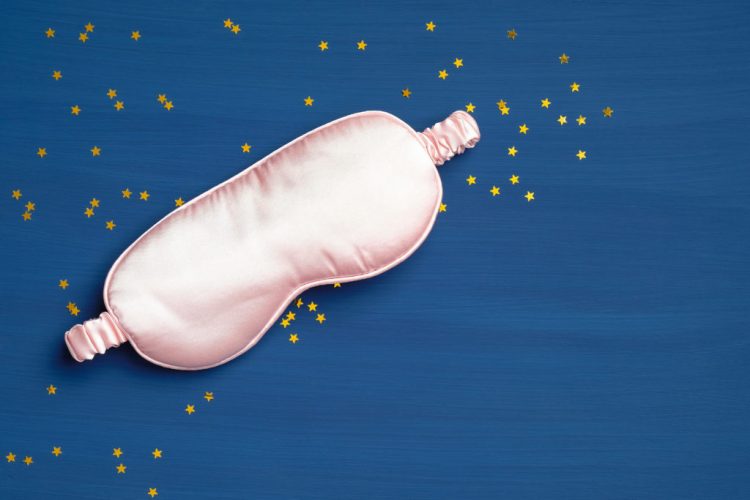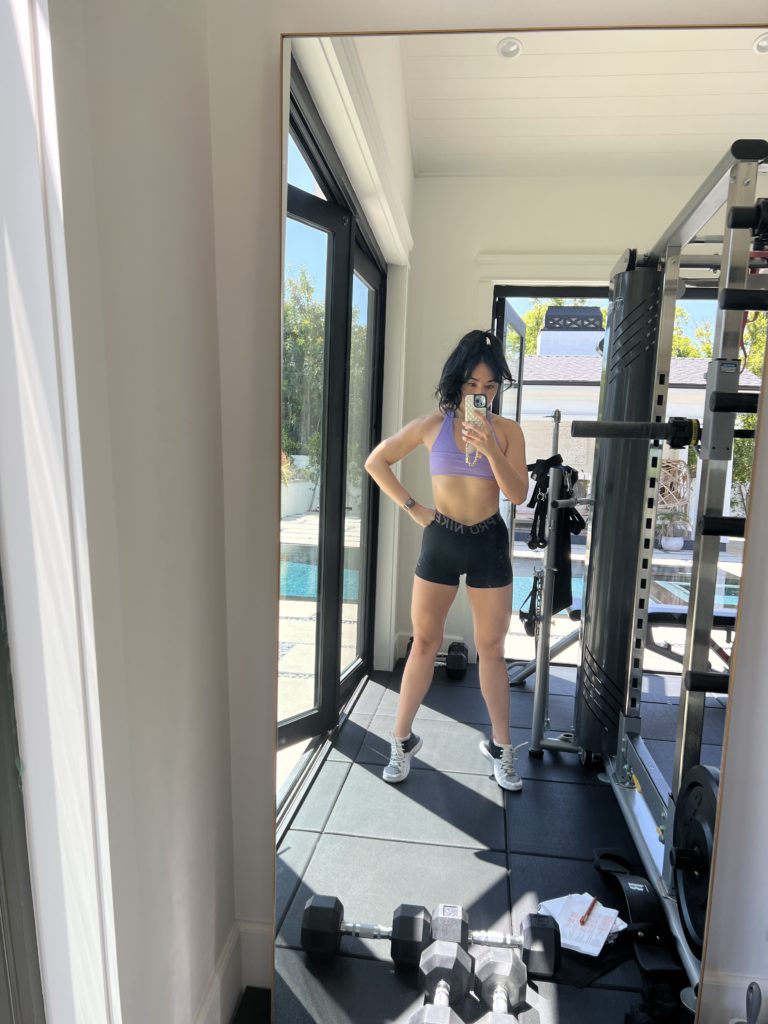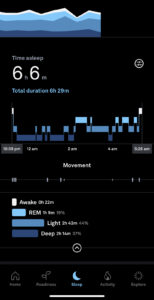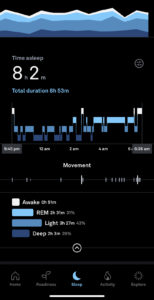The Importance of Sleep on Your Fitness Journey
“I’ll sleep when I’m dead.”
“It’s late, but one more episode won’t hurt .”
“I’m too busy to go to bed early.”
“I only need 5 hours of sleep.”
If you’ve never uttered at least one of those phrases…good for you! Most people are guilty of at least one, if not several. It’s our “do-more, get ahead, rise to the top, be the best” mentalities that perpetuate the idea that sleep should be last on the list of priorities of overall health and wellness. But it’s not. It’s arguably one of the most important ingredients to maintaining a healthy lifestyle and weight.
According to a Harvard Medical School article, one-third of Americans don’t sleep seven to nine hours per night. One-third! To be honest, I assumed the number would be even higher.
Also, seven to nine hours isn’t just some arbitrary number. It’s the recommended amount of sleep your body needs to ward off diseases such as: high blood pressure, heart disease, diabetes, and obesity. This number also plays a role in conditions such as migraines, depression, and brain fog.
What really struck me about this article was what it went on to say next:
People are far more inclined to change their diet and exercise to control weight, as opposed to focusing on improving their sleep, even though more sleep just might be the answer.
Why we can’t ‘sleep’ on the importance of sleep
Sleep directly affects fitness and weight, and catching more quality Zzz’s might reduce the need for certain medications, alleviate many of the aforementioned conditions, and reduce the need to go on a hardcore diet. (#dietskindasuck)
When you sleep (and sleep well), your body repairs itself. That’s the root importance of sleep – especially deep sleep if you workout a lot. It’s the restorative kind that strengthens your immune system, enhances fitness, boosts energy, and keeps hormones balanced, including your hunger hormones.
REM sleep (different than deep sleep) boosts cognition, memory, focus and creativity. Furthermore, sleep helps manage our mood and anxiety levels, leading to less stress and fewer mental health issues.
With the mountains of evidence proclaiming sleep as the panacea to beauty, weight, and mental health, why then do so many of us ignore the science, double down on the mid-day lattes, and watch “just one more episode” on Netflix, foregoing this FREE fountain of youth?
The answer is simple: we can’t see the gains the way we do when we sweat through a workout, feel our muscles burning in the gym, and diet down to see better number on the scale. Everything that happens when we sleep literally happens under a cloak of darkness. But the science is there, and the positive effects are real, so if you can trust what’s happening on a cellular level, it’s time to make sleep the ultimate priority!
Here are a few examples of what I mean by “what’s happening on a cellular level.”
According to SleepFoundation.org, sleep and the body’s circadian rhythm help regulate the following hormones:
- Melatonin, which helps you get sleepy and stay asleep
- Growth hormone, which supports bone and muscle development as well as metabolism
- Cortisol, a stress hormone
- Leptin and ghrelin, the main hormones of appetite control
Sleep also plays a role in glucose metabolism. Even one night of missed sleep could contribute to the development of insulin resistance and eventually prediabetes (high glucose levels) in an otherwise healthy person.
The (often ignored) importance of sleep in muscle growth
When it comes to weight training, many athletes have the formula all wrong for growth.
It’s common to think you build muscle during training, lifting and running, when in reality, it’s only part of the equation. John Underwood, Director of the Life of an Athlete Human Performance Project says, “ Once your workout is over, your body begins to react to the stimulus of your workout and also to the damage you induced. When you do a workout, you cause micro-damage within muscle tissue and damage the complex chains of proteins that are housed within muscle.”
Basically, this means you create inflammation during your workout. This is where rest comes in. During rest, your body works to rid the “damage” and begins to repair and replace cells and tissues, thus, building stronger muscles over time.
“Much of this intra-muscular chemistry and synthesis takes place at night when you are sleeping. It is also well known that during early sleep (90-120 minutes after falling asleep) there is a huge release of human growth hormone (HGH). This is one of the most critical factors in growth.”
Here’s the TL;DR – If you’re not sleeping enough, you’re sabotaging your own fitness goals.

Sleep and weight
As if the training benefits weren’t enough, the effects of sleep duration on weight directly correlate to the body’s production of appetite-regulating hormones.
When you don’t sleep enough, the hormone ghrelin goes up, which increases appetite. Simultaneously, it lowers levels of the hormone leptin, which leads to feeling less full. This often leads to weight gain. (Ever feel tired and all you want are bagels and chocolate? This is normal, and a physiological response to fatigue). By contrast, sleeping more helps balance out these hormones.
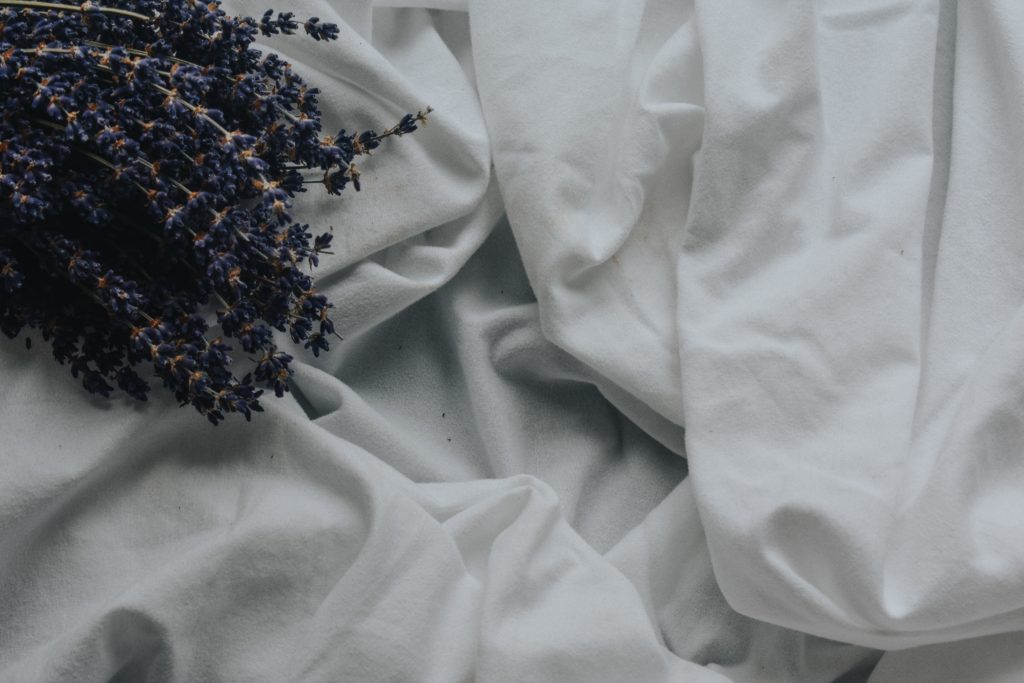 How to prioritize sleep on your fitness journey
How to prioritize sleep on your fitness journey
It’s one thing to know about importance of sleep. How can you actually start making personal changes? You just have to start! Then, incrementally improve your efforts and goals until you are actually “sleeping like a baby.” How do you “just start?” Pick a few things to try below and see what happens.
Before bed
Wind down a few minutes earlier
Put your screens away at least an hour before bed
Give your eyes a break with blue light blocking glasses
Do something relaxing, like read, knit, meditate, journal, take a warm bath, or sip some nighttime tea
In bed
Get comfy in PJ’s that aren’t too hot or too cold
Invest in your sleep with some nice, soft, cooling sheets
Set the room to a cool, comfortable temperature
Drown out distractions with a white noise machine (or brown noise, according to TikTok).
Calm your mind by spritzing your pillows with a lavender spray
Oura Ring Oura Ring
Sleep Sore = 82/Good Sleep Score = 94/Optimal
Sleep tracking
Many companies have come onto the scene to leverage the cold hard sleep facts and science to create devices and apps that help consumers track and improve their sleep. There are gaggles of sleep geeks out there (ahem, me) now wearing rings, monitors and using devices to hack their rest and wake up to “scores” they can be proud of. Here are some we like:
So, the next time you decide to binge the latest episode (or 3) of whatever is trending on Hulu, pause. Ask yourself if it’s worth risking the gains you’re trying to make in the gym, and in the kitchen. Your physique is begging for more rest, not harder workouts, longer runs, or slashing calories.
Sleeping longer might just be the most passive way to stay in shape, and it’s certainly the cheapest. Give it a try for a few weeks and take note in a journal about what you’re implementing and how you feel. The benefits might be subtle at first, so take the time to write down your sleep duration, weight, and mood, and simply pay attention to even slight changes. Over time, they might just add up in ways you never “dreamed” possible.

Source by www.blogilates.com
